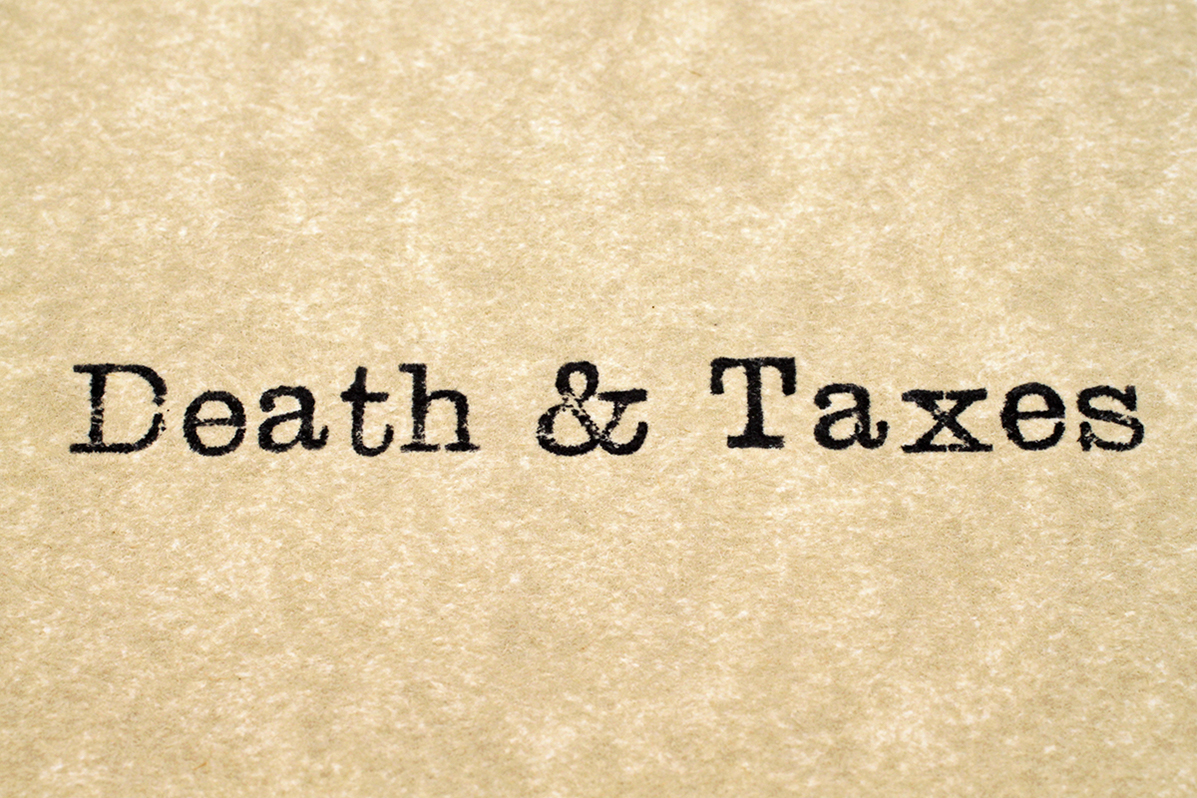Death and taxes

A wise man once said: “… in this world nothing can be said to be certain, except death and taxes.” Benjamin Franklin, 1789
People can manage to avoid taxes, however death proves a lot harder to avoid and, sadly, catches up with everyone.
While Australia doesn’t have an inheritance tax, there can be taxation consequences that need to be considered prior to a trustee selling or transferring any assets and therefore ensuring the best outcome for the beneficiaries.
The 5 types of assets and their taxation consequences
Note: The following is a summary and a guide only. You should seek independent advice to ensure that the following applies to your particular circumstances.
- Cash / Bank Accounts
There are no taxation implications for the trustee or beneficiaries from cash and bank accounts that are in the deceased parties name, aside from any interest that may be received on the accounts.
Beneficiaries do not have to declare receipt of their share of cash from bank accounts as income with the ATO.
- Residence (Principal Place of Residence)
If the property hasn’t been rented and has been the deceased’s principal place of residence then:
- if the property is sold within 2 years of the owner’s death, there is no capital gains taxation implication and the funds are tax fee.
- if the property is sold 2 years after the owner’s death, then capital gains applies to the difference in value of the property on the date of the owners death to the date of the sale.
- if the property ownership is transferred to a beneficiary, the property is deemed to be ‘acquired’ by the beneficiary for the market value at the date of the owner’s death.
- Investments (i.e. Shares) and Property that has been rented
Assets acquired before 20 September 1985:
- If sold, are not liable for capital gains tax
- If transferred to a beneficiary, are deemed to be acquired by the beneficiary for the market value at the date of death.
Assets acquired after 19 September 1985
- If sold, are liable for capital gains tax
- If transferred to a beneficiary, are deemed to be acquired by the beneficiary at the same cost and date as the deceased person. That is, if they acquired a house on 1 January 2000 for $200,000 and, if at the date of death, the property is worth $500,000, the beneficiary is deemed to acquired it for $200,000. Hence they have potential capital gain of $300,000.
- Life Insurance
Life insurance typically specifies the intended recipient of the proceeds and is payable to them directly not the estate. Payments of life insurance are exempt from capital gains taxation, hence tax free.
- Superannuation
Payment from a superannuation fund is big topic! If funds are paid to the deceased's dependants as:
- a super income stream, the proportioning rule is used to calculate the tax-free and taxable components; and/or
- a lump sum, the whole amount is tax-free
Declaring income and paying tax in the stages of administration
- Before probate is granted. At this stage, beneficiaries are not entitled to the income of a deceased estate. You include any income earned in your Trust tax return.
- Probate is granted but final distribution is not ready. At this stage, generally, beneficiaries are not entitled to the income of a deceased estate, however you can do an interim distribution if you are certain that the remainder of the estate is sufficient to cover any outstanding liabilities.
If you pay any income to a beneficiary before the estate is fully administered, they are considered to be entitled to it.Hence the beneficiaries will be liable for tax on the income. - Distribution of the estate. At this stage, obligations are paid or provided for in full and the net income of estate is available for distribution.
First three income years
For the first three income years, the deceased estate income is taxed at the individual income tax rates, with the benefit of the full tax-free threshold, but without the tax offsets (concessional rebates), such as the low-income tax offset. No Medicare levy is payable.
This concession offers the possibility of taxation planning as follows:
- Capital gains taxation –If there is significant capital gain and if the sale process can be spread over three years, there is the possibility of ensuring the lower taxation rates are utilised.
- Income from investments– If the beneficiaries of the estate are already paying taxation, leaving the investments in the estate will take advantage of the lower taxation rates. This could be in the order of $10,000 per annum.
You cannot extend this concessional period of three tax years.
Remember, this article is a summary and should be used as a guide only. If you would like to find out how it applies to your particular circumstances please do not hesitate to contact me.



